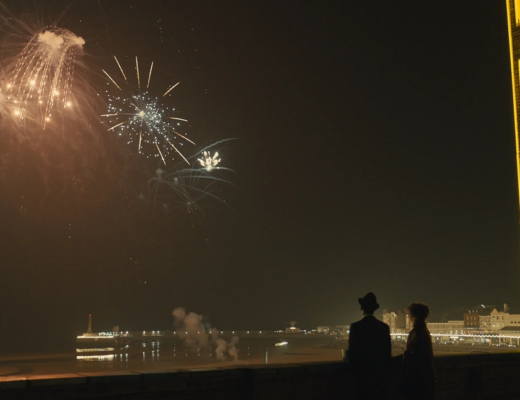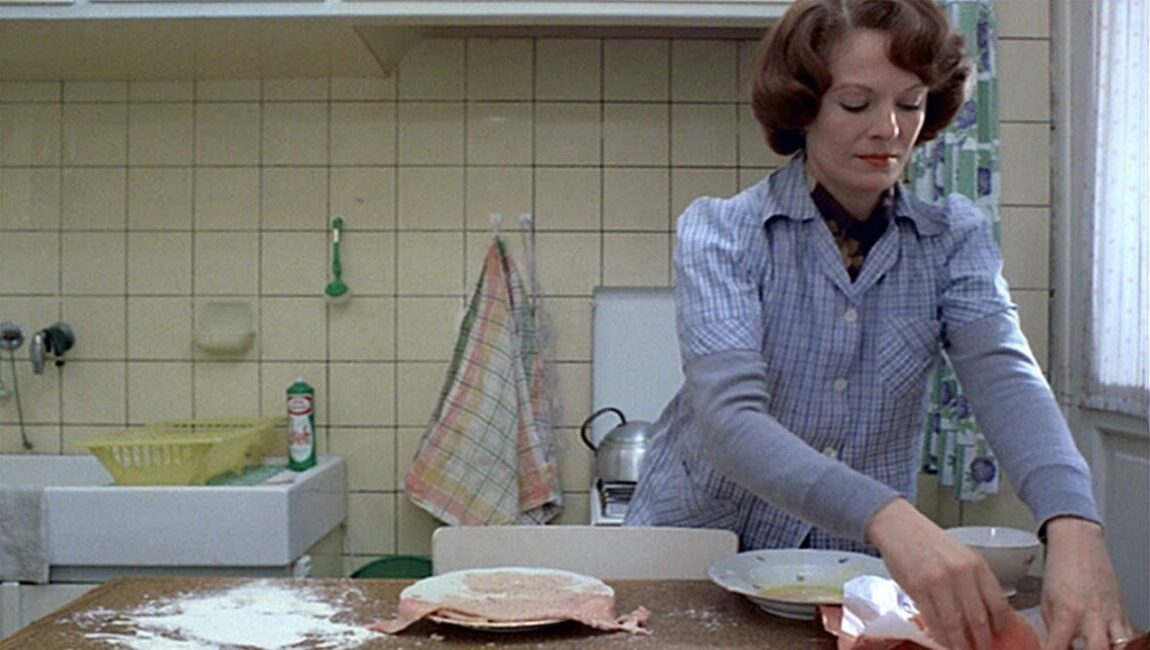“I shall. For it is a happy tale.” So begins the lurid odyssey of flesh reformed and soul remade, a marionette reanimated by its creator for the world anew. In Poor Things, Alasdair Gray’s 1992 novel, the tale of Frankenstein emerges from its dark Gothic origins in Mary Shelley’s solemn Romantic original, transformed into a romp-’em-stomp-’em vision of unbridled lust and zeal. In place of the mechanistic stitching that constituted Victor Frankenstein’s abomination is now the rejuvenation of life from life itself: Bella Baxter, with the body of a full-grown woman and the brain of her unborn fetus, finds herself under the care of one Dr. Godwin Baxter, for whom she was originally designed to serve and keep company. Quickly awakening to the wonders of the world — with a maturity far outstripping that of a developing infant — and discovering the joys of fucking, Bella is diagnosed with erotomania, or the delusion of having another infatuated with oneself, and consequently lets herself be regaled by visits to far-flung places with fantastical men.
This reimagining of Shelley’s post-Enlightenment classic raises a few questions. Who, or what, are we to take as the titular “poor things”? If “poor” indeed surmises the sorry nature of Bella’s unholy resurrection — from an unknown corpse, no less, as inscribed in the autobiography of her husband — then what of her new life under the spell of novelty and radical innocence, bound to her creator as a kept woman but nonetheless freed from the general strictures of polite society? And in a classic reiteration of the mind-body problem, whose person are we speaking to when we address Bella Baxter? Where Frankenstein; or, The Modern Prometheus saw modernity as fraught with the perils of rationalism outreaching itself, Gray’s postmodern interpretation imagines a stab at personal liberation precisely through rationalism reaching its logical end. After the foibles and social niceties are exhausted, the body — flesh, blood, and bone — is all that remains to determine and realize its desires.
Taking Gray’s text as its starting point, director Yorgos Lanthimos and screenwriter Tony McNamara further extirpate Frankenstein’s Gothic influence and fashion, in lieu of it, a whole other landscape of bubblegum unreality. Poor Things, winner of the Golden Lion at Venice this year, possibly marks Lanthimos’ most grandiloquent work to date and is all the better for it. In the film’s singular distillation of Victorian London into its most utopian and progressive imaginations, the city itself is rendered in merely saturated hues of yellow, pink, and cobalt blue, while the rest of the world presents a retro-futuristic effort at sketching what civilization, in the advent of medical and technological advances, could achieve. Cable cars and flying ships giddily decorate the cotton-candy skies of Lisbon; the city of Alexandria and its majestic suffering are filtered through old-school colonial panoramas of desert romanticism; wintry Paris, with its brothels and bedposts, is dotted deliciously by flamboyant costumes and interiors almost reminiscent of Disneyland.
Amid this “familiar yet alien world of calculated dissonance,” as Manohla Dargis unfavorably wrote of the film in The New York Times, the Prometheus that is Bella Baxter (Emma Stone) comes into being on the operating table of Godwin (Willem Dafoe), her grotesquely scarred creator and father-figure. “God” is her name for him; words, not her strong suit upon inception, are voraciously acquired in the days and months that follow and, from unsteady locomotion (a result of lack of coordination between her adult body and formative brain) and inchoate babbling, she soon develops a vocabulary that surprises even those accustomed to her witty expressions. “You don’t know what bananas are, you’ve never heard of chess, and yet you know what ‘empirically’ means,” exclaims her incredulous lover, the slick lawyer Duncan Wedderburn (Mark Ruffalo), who hatches a ploy to extricate Bella from Godwin’s care, only to regret ever setting eyes on her when she proves obstinate to his ideas of social place and decorum.
An ensemble cast comprising Ramy Youssef (playing Max McCandles, Bella’s well-intentioned but painfully scorned fiancé), Christopher Abbott, Jerrod Carmichael, Kathryn Hunter, and Hanna Schygulla provides fierce and feisty counterpoint to the stupid innocence of Bella’s inner world, and what unfolds over the film’s moderately lengthy runtime effectively amounts to a bildungsroman of womanhood in an age mostly having done without it. Her initial doll-like mannerisms, whether by design or by the unhappy circumstances of vivisection, suggest an infantile predilection to manipulation and abuse; the men in her life effectively look at her with either scientific curiosity or strong sexual urgency. But upon the discovery of the veritable tactile pleasures offered by certain fruit and — almost immediately after — the sensory bliss of “furious jumping,” the rapidly developing Bella possesses little shameful resistance in her that has otherwise conditioned the ladies of her time. She gambols, frolics, and opens her eyes to the onslaught of knowledge and experience that comes her way: in Carrollian parlance, she gyres and gimbles in the wake of a language repurposed by her, for her.
But Bella’s education lacks the solipsism of the hermit, and her awareness and subsequent construction of a moral order are keenly and movingly realized by Lanthimos. Despite its flippant trappings as a goofy and hedonistic literary fantasy, Poor Things employs its various melodramatic registers not thoughtlessly, but pointedly so, and, when viewed with the technophobic strands of its mythic original, comes across almost as a naïve return to pre-critical idealism. Who, after all, would deign to have a corpse, much less that of a woman-child, equipped with any notion of sexual sensibility? Gray, Lanthimos, and McNamara suggest, perhaps, that the corpse is the woman as traditionally kept and bound to the whims of the Victorian household, predisposed to hysteria and other feminine maladies in the absence of compliance. Stone’s accentuation of Bella’s cadaverous demeanor, then, proves delightfully illuminating as she wades and staggers into frame, clumsy and clueless but never quite subservient: like babies, the dead don’t quite care about how they behave.
In this vein, the stylistic choice to render Bella’s universe dizzyingly through the flare of fisheye lenses and distorted background whirls represents simultaneously a knowing and self-critical distancing from it, as well as an understanding that cynicism alone, whether refracted through Nietzschean tragedy or drab social realism, doesn’t quite say anything new. While Dargis is right that the film’s tonal and spatial dissonances are calibrated to a fault, they do not detract from its pleasures; rather, much of Poor Things is enhanced by this insofar as its modus operandi possesses the possibility of a tempered utopianism hitherto denied women subjects and nowadays denied universally. At the core of Bella’s self-discovery lie two awakenings, sexual and political, and the film’s strongest conviction is to intertwine both. When she screws, it is both selfishly utilitarian (focused on the necessity of release) and immensely selfless, unperturbed by belonging and possession. When she uncovers the hypocrisies of her lovers, who yearn to mold her into their plaything and object of desire, she also gains a consciousness for solidarity and identity that recall the first wave of feminists who were much ridiculed in their time. The ridiculously gaudy steampunk visuals of Poor Things, closely resembling the blind visions of A.I. images, speak to the cautious undercurrent of optimism undergirding Lanthimos’ direction. As Bella declares, not loftily, “it is the goal of all to improve, advance, progress, grow. I know this in me, and I am sure I am indicative of all.” As with her, the film is a celebration of the tabula rasa we find ourselves drawn back to in times of political anguish: we may be the products of dead men and ideas, but the world at large is what we make of it.
DIRECTOR: Yorgos Lanthimos; CAST: Emma Stone, Mark Ruffalo, Willem Dafoe, Ramy Youssef, Christopher Abbott; DISTRIBUTOR: Searchlight Pictures; IN THEATERS: December 8; RUNTIME: 2 hr. 21 min.







